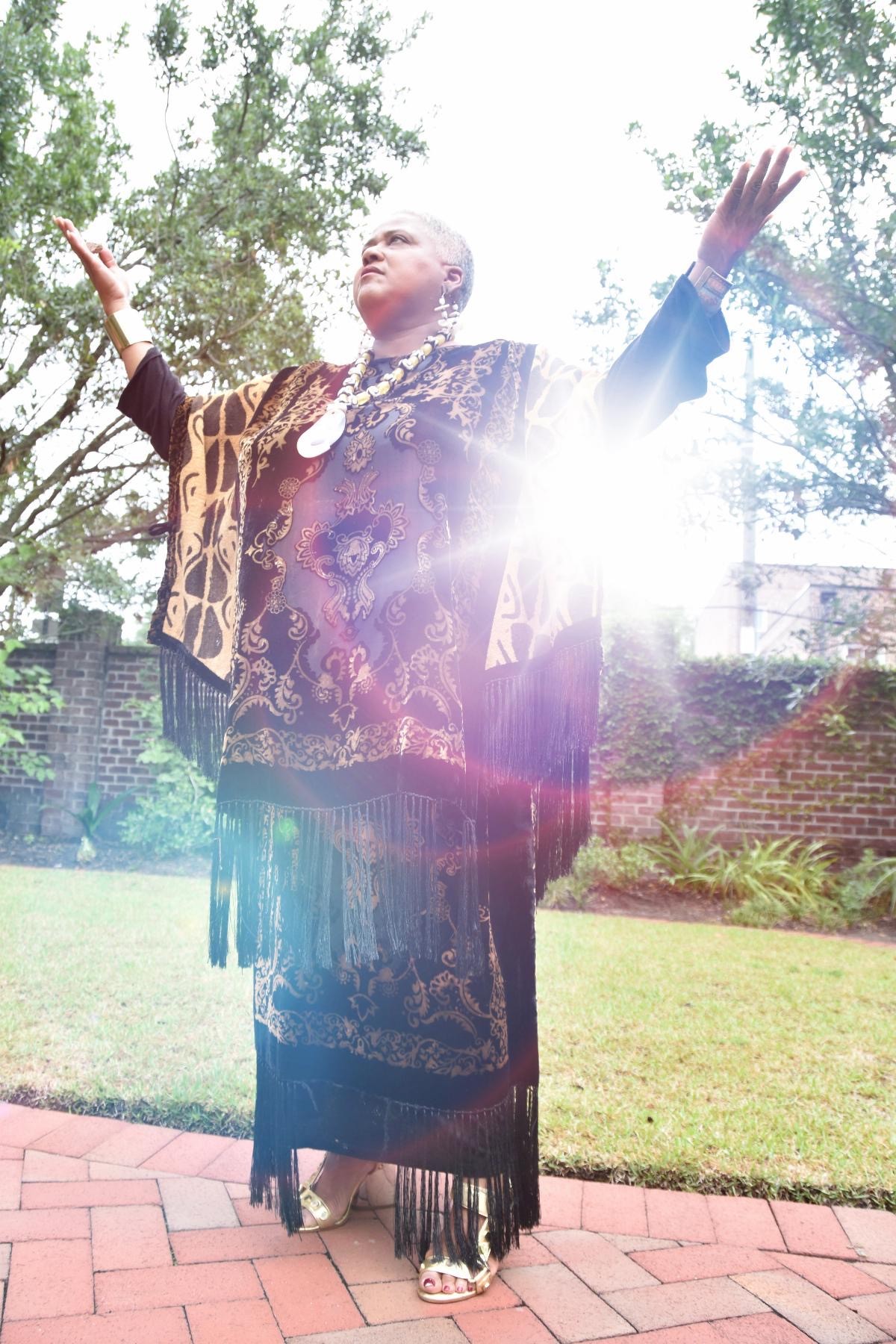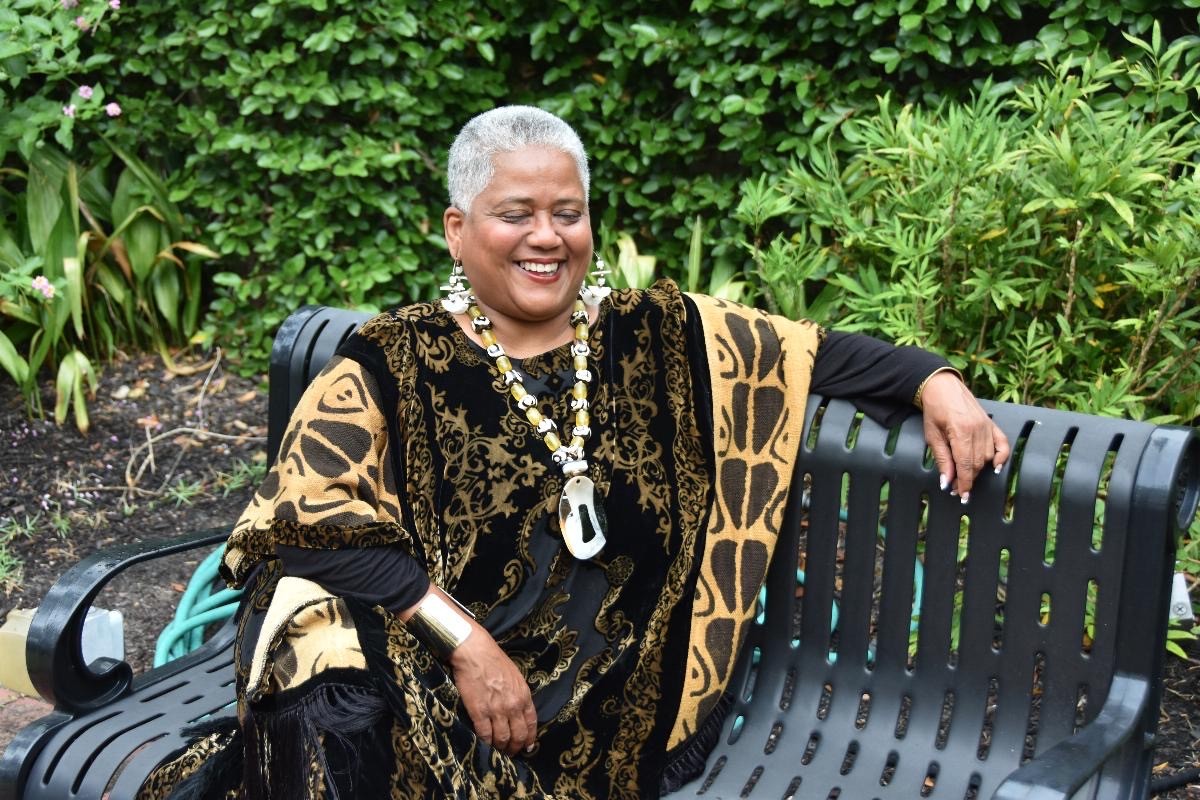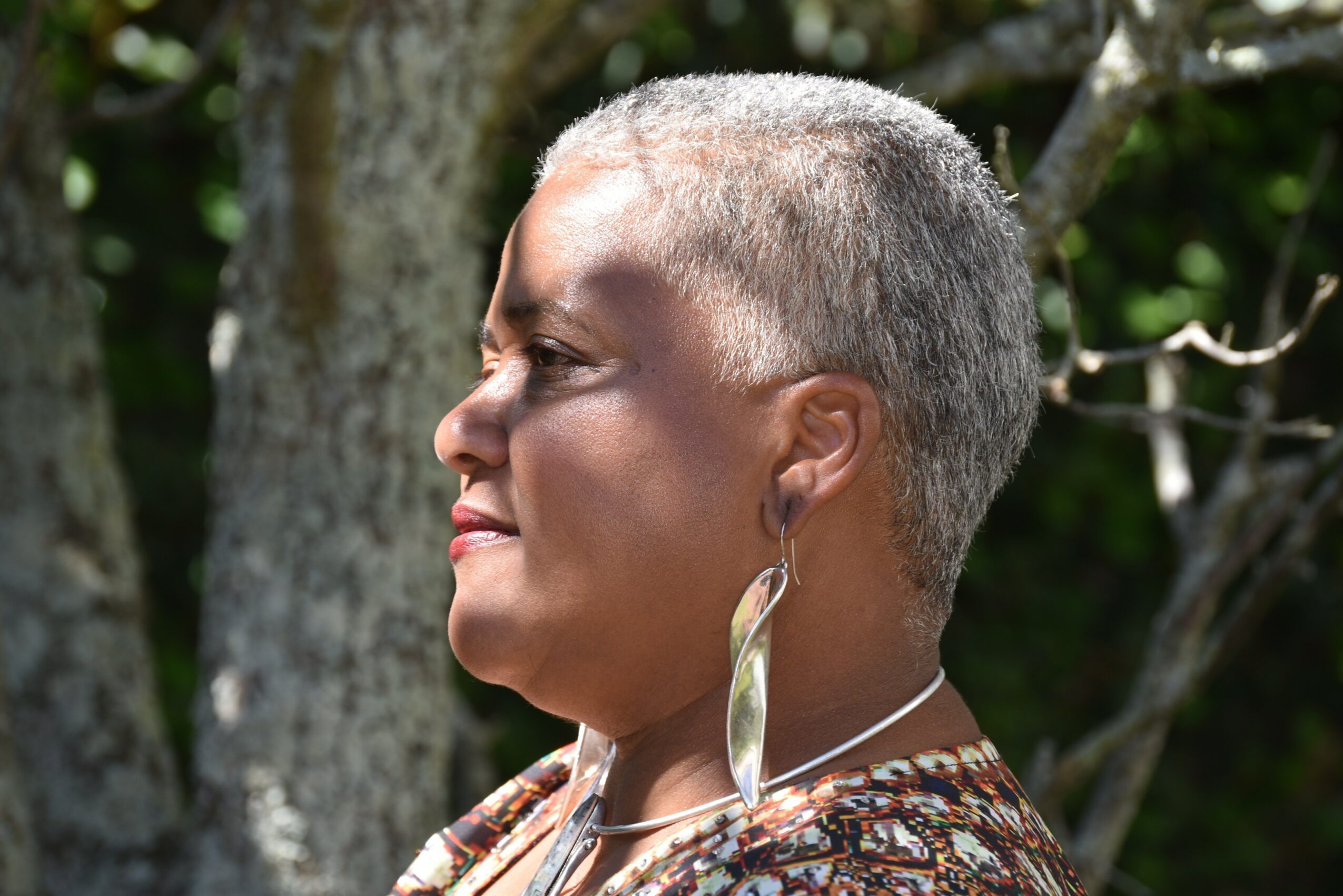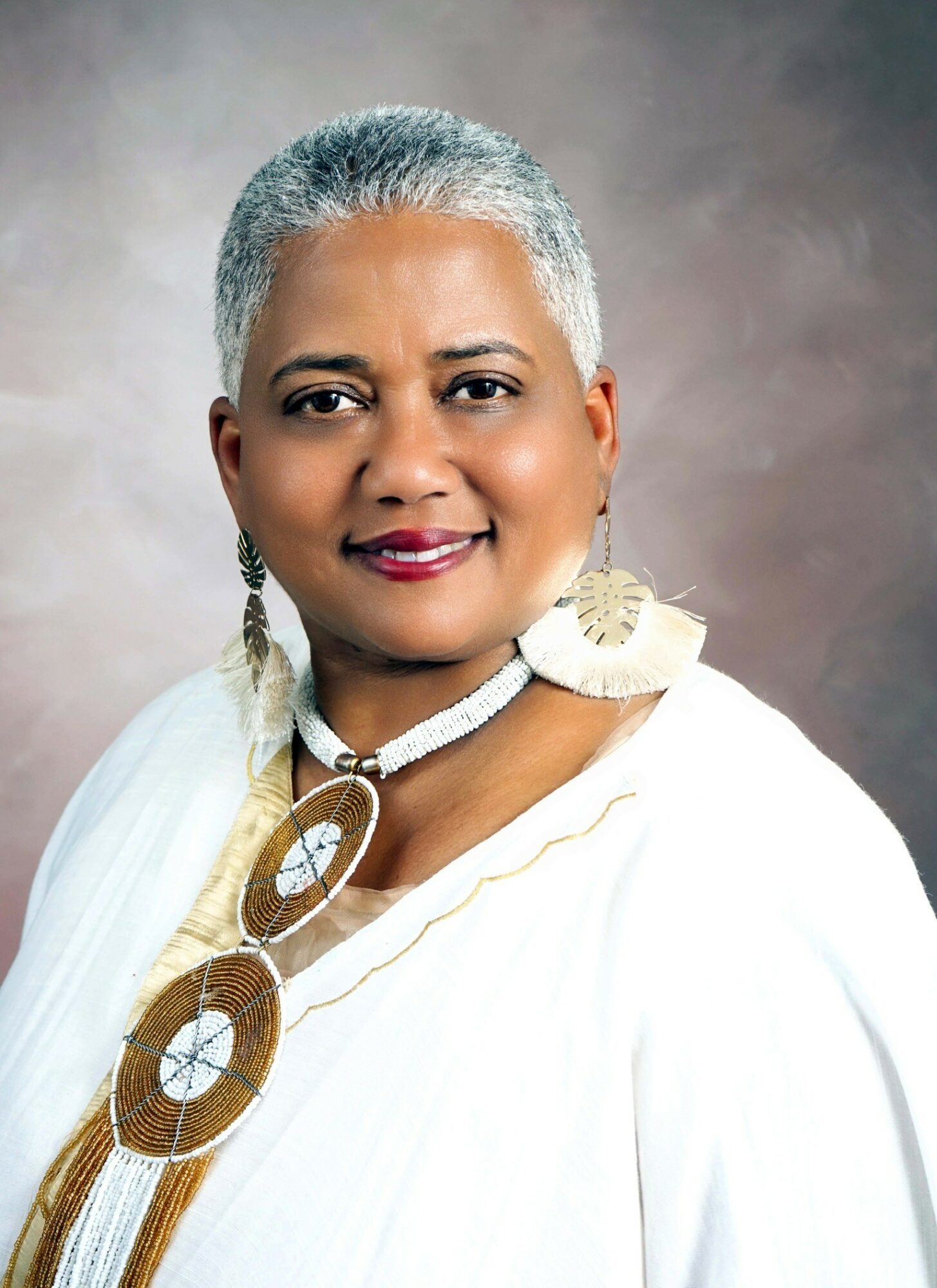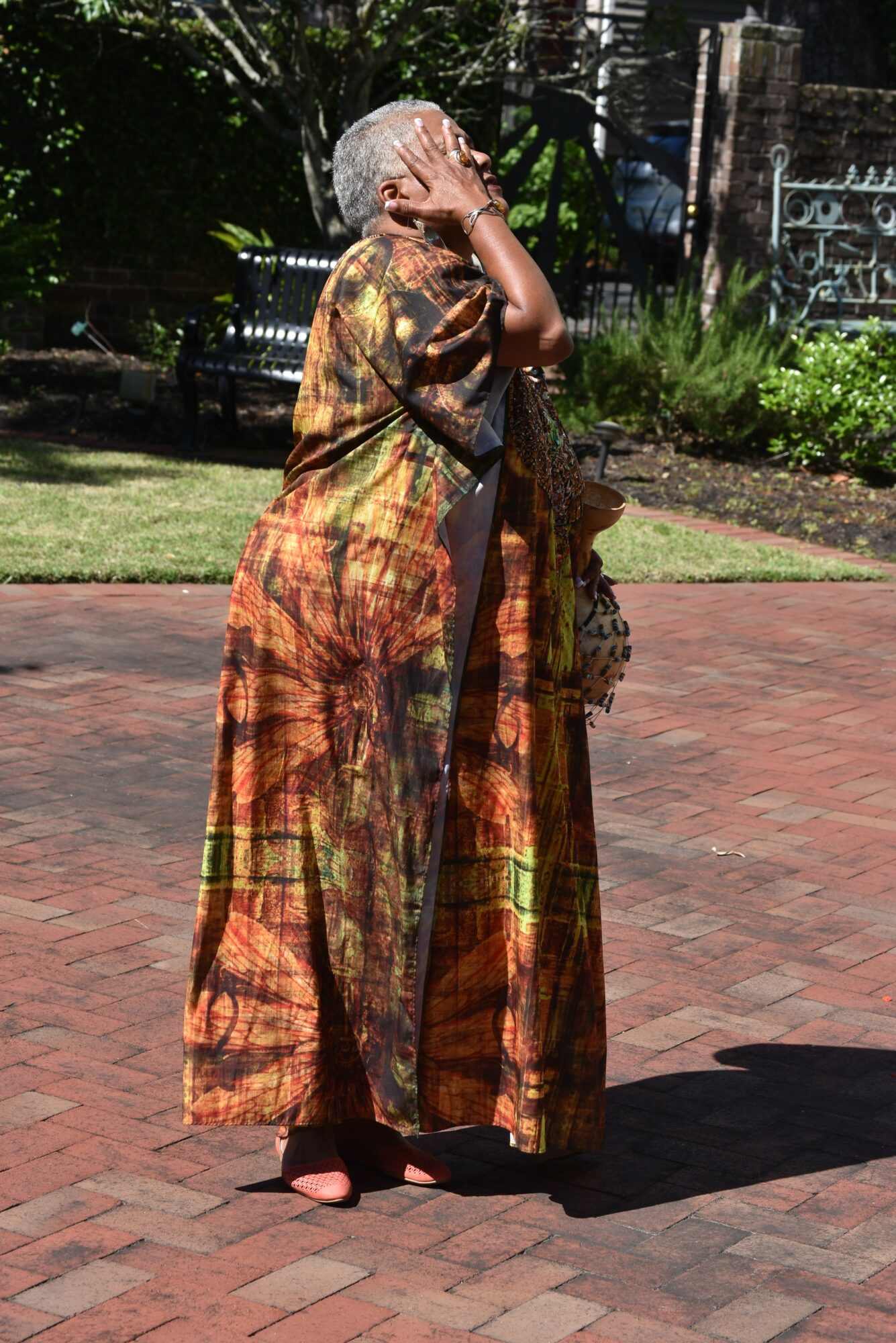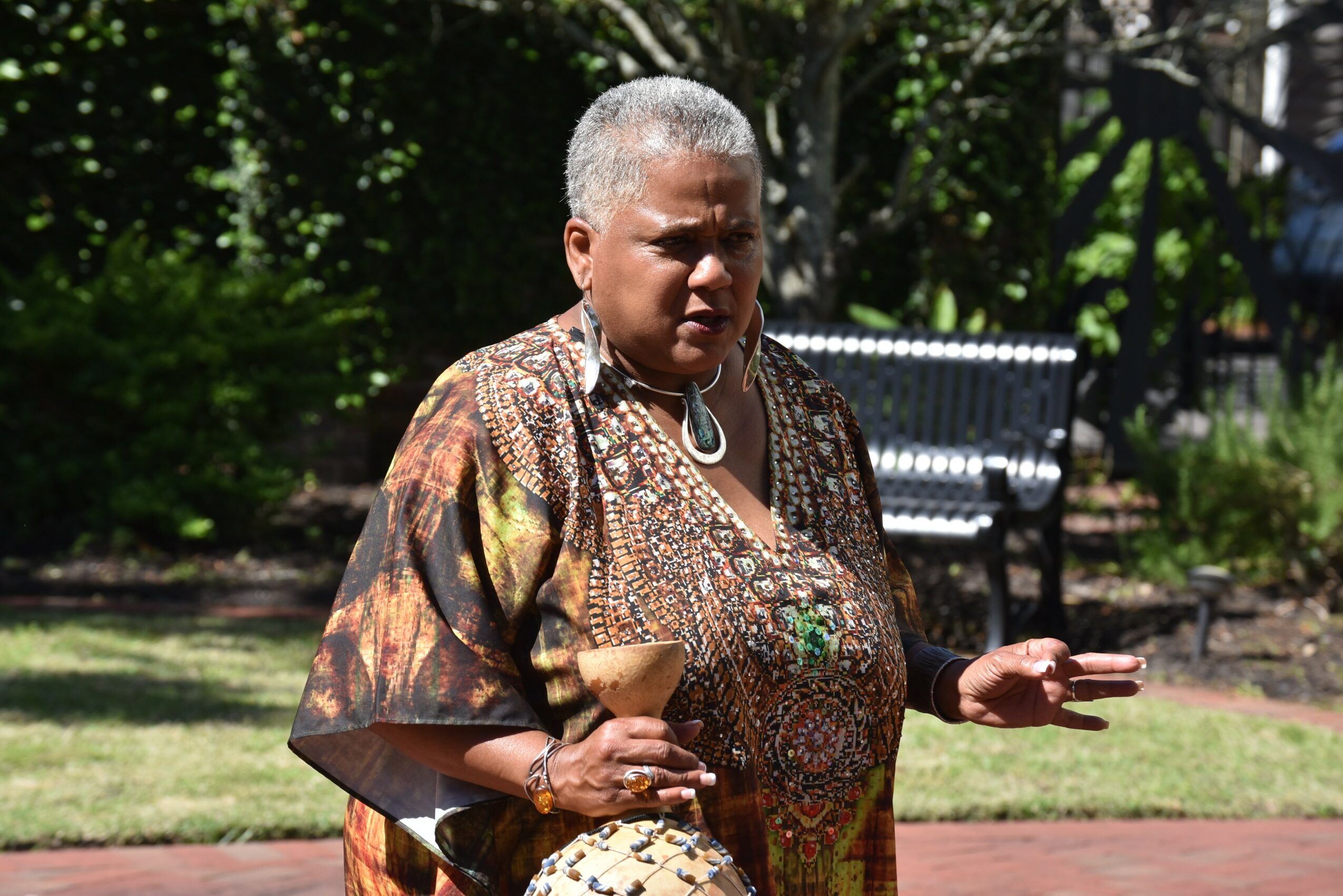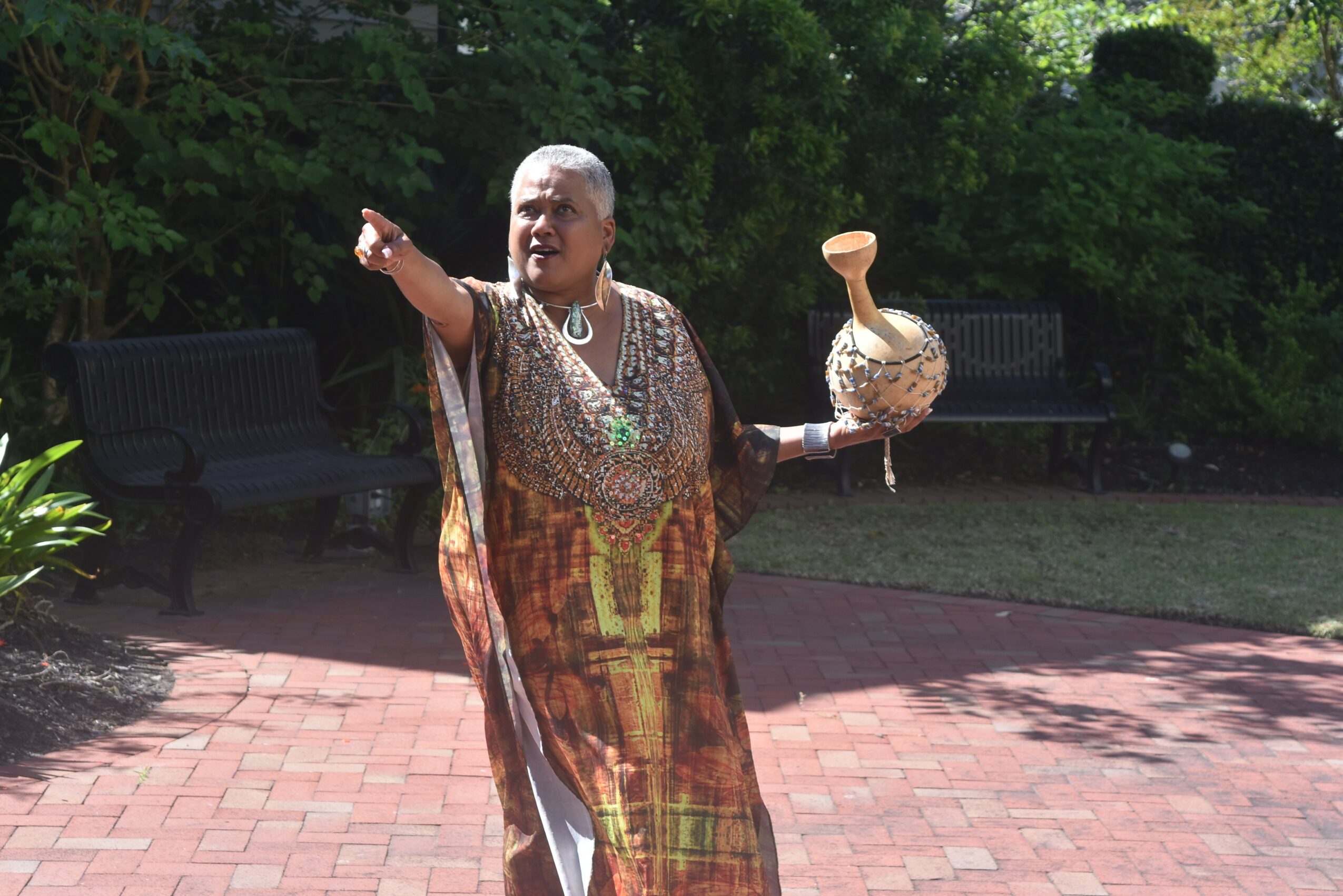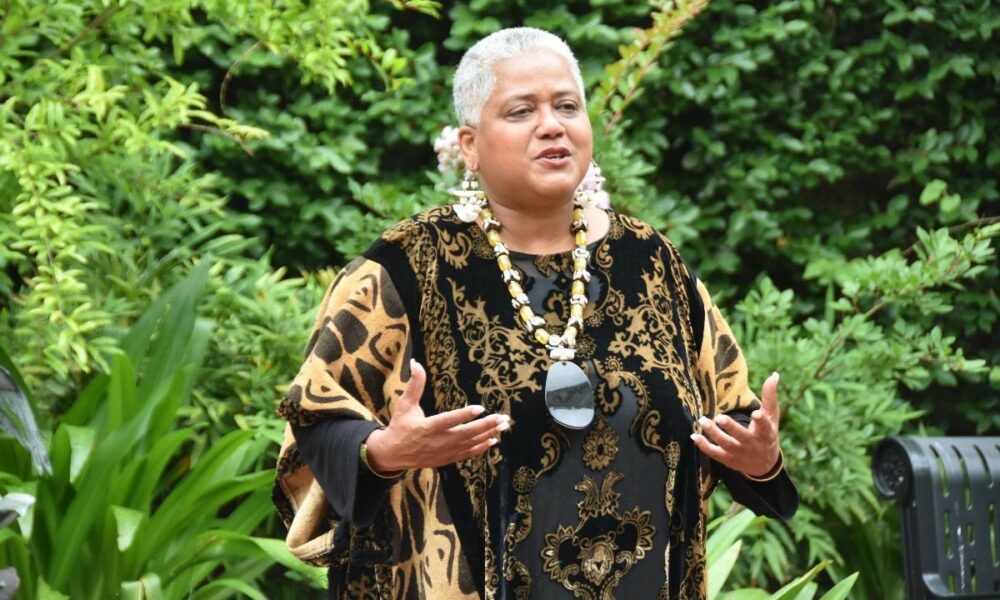

Today we’d like to introduce you to Lillian Grant-Baptiste.
Hi Lillian, please kick things off for us with an introduction to yourself and your story.
My journey to becoming a Master Storyteller and Celebrant began when I was a little girl as I sat spellbound at the feet of my maternal great grandmother “Nana.” She would captivate my brothers and I for hours on end with stories, real-life and tall tales of family and community adventures, laughter and love, triumphs, and tribulations. Her favorite tales were stories about the mischievous Brer Rabbit, and the mysterious conjure man, High John the Conqueror, and other supernatural characters from Gullah/Geechee tradition.
Although my great-grandmother moved through the world differently, her influence and impact were stirring and significant, and much of it was deeply rooted in her ability to craft and tell a story. These were the stories that stirred and strengthened me, that helped me to find my individual and collective identity and kept me centered and connected me to something that was far greater than myself.
As a young adult, in my desperate pursuit of independence and self-affirmation, I began to neglect and set aside, the stories and traditions that I had once confirmed and helped to fortify my sense of self-worth and collective responsibility. During that same time, my life began to slowly deflate and unravel. Sadly, as I thought it could not be worse, we lost our matriarch, Nana. Ironically, it was during this time of great grief and loss that I began to reckon with, reclaim and rediscover myself.
Part of that reclamation was coming to grips with the power and purpose of storytelling. I committed to not just telling my story and our collective historical story, but to helping others, particularly those who are most marginalized, to tap into and find meaning, hope, reconciliation, and resilience in their own personal stories.
Knowing and leaning into my own story provided the resolve that I needed to undergird and guide others in discovering and sharing their own stories. One of my first experiences as a Storyteller was when I was a consultant for the Project Azuka Program. Project Azuka was an HIV/AIDS empowerment and support initiative for African American women, founded in the 1990s by Pandora Singleton.
My job was to use storytelling to educate, enlighten and encourage women who had been diagnosed with Aids. Initially, my aim was to support them through the stories of inspiration that I shared, I quickly realized that although these stories, helped, this was not what was most necessary. Those ladies did not necessarily need to hear my stories. I needed to use my skills as a story keeper and gatherer to help facilitate the process of those ladies discovering, ritualizing, finding hope in, and telling their own unique stories.
These were stories that they would share, and leave as a legacy, these were the stories that would give them the strength and peace in the face of their often-impending transition. I learned a lot from my time at Project Azuka, but what I learned most was the value of not just telling a story, but how true power and transformation begin when you can empower others to reflect, tap into and share their own stories, for we all have powerful stories, and as we reflect and tell our own stories, we give others the confidence to do the same.
I have embraced and taken this philosophy with me as I have been on this journey as a story keeper and storyteller, rather it has been in the role of helping young adults that were disconnected to use their stories to reconnect to their families and community, or when I have developed and facilitated an empowerment and resiliency group for women who were in abusive relationships.
Another role that I have embraced, particularly within the last few years, has been that of a ritual Celebrant. In this role, I commemorate and accentuate key historical moments, with a particular focus on the Gullah/Geechee history. I have taken on the role of a commemorator of the “Weeping Time” which was the largest slave auction in American history, where 429 men, women, and children were auctioned right here in Savannah, off Augusta Road on March 2-3, 1859.
I will continue to share and offer up the gift of story to enlighten, empower, and to attempt effect lasting and meaningful positive community change.
Alright, so let’s dig a little deeper into the story – has it been an easy path overall, and if not, what were the challenges you’ve had to overcome?
No, my path has often been filled with obstacles and obstructed by failures, many self-imposed, setbacks, setups, and disappointments. The very craft that I have been called to, can at times be emotionally unsettling. Many of the stories that I tell are stories of historical atrocities and of collective trauma and pain. I am an empath, so when I tell the stories I feel the pain of those whose stories I tell, which can physically and emotionally depleting. I also have had to deal with the practical issues that come with being a performing artist, often of which entail individuals and organizations not wanting to properly compensate me for my work. I have spent years researching, studying, and cultivating my skill, and people would want me to perform for little of nothing. I am grateful that rarely happens anymore, but when it did, it was hurtful and disappointing.
As you know, we’re big fans of you and your work. For our readers who might not be as familiar what can you tell them about what you do?
I am a cultural artist, celebrant, and uplifting master storyteller. I have more than 30 years of experience as a motivational speaker and professional storyteller. I have presented and performed at several venues throughout the United States.
I gather and tell stories from diverse cultures but have a particular fondness and love for folktales from the Gullah/Geechee tradition. I truly believe that storytelling is a powerful tool that can be utilized to uplift, empower and ultimately transform individuals, families, and communities.
My signature story is “The People Could Fly”. The story is a moving and beautifully retold folktale that captures how the faith of a people gave them the strength to unify and magically fly above the tribulation and trepidation of slavery. Throughout my performances, I continually promote a deep and abiding appreciation for and preservation of the stories and folktales from traditions around the world, but particularly stories from the African Diaspora.
I am also an informed celebrant that creates meaningful and customized ceremonies that mark a major rite of passage event, like weddings, historical commemorations, and naming ceremonies. I created and directed the Umoja Rites of Passage Program for families living in Savannah’s public housing neighborhoods.
More than 100 families completed the program, and the program was nominated for the 1995 Governor’s Exemplary Prevention Program Award. I also designed, developed, and coordinated the City of Savannah’s Leadership Development Institute, which aims to build the advocacy skills and leadership development capacity of grassroots leaders.
Additionally, I serve as a member of the faculty of Parent University and Step-Up Savannah’s Neighborhood Leadership Academy. In addition, I am on the Board of Directors of the King Tisdell Cottage Foundation, the Martin de Porres Society, and Chair the Board of Directors of Healthy Savannah.
My greatest joy is spending time with my three adorable grandsons, Alix, Ashton, and Ali.
Contact Info:
- Website: https://lilliangrantbaptiste.com/
- Instagram: https://www.instagram.com/lilliangrantbaptiste/?hl=en
- Facebook: https://www.facebook.com/lillian.grantbaptiste/
